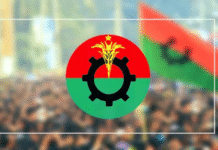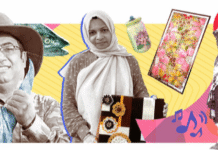Darkness under the light

Bangladesh has made enormous strides in many sectors.
The country’s economic growth crossed 8 per cent last fiscal. Its forex reserve went over 33 billion, which is enviable for any nation. Bangladesh has managed to build a sophisticated national database to ensure safety and security for its huge populace. The tiny land accommodates at least 150 universities with a view to building a solid nation.
All these achievements are unique in the history of the nation which was born through a bloody war against grueling autocracy, rampant corruption and sharp discrimination. The development indicators are beacons of hope of this ‘emerging country’. Yet there is always something missing, something that deflates the balloons of expectations.
We seem to lack something to complete a journey of perfection. Some loopholes, some imprecisions and some nesciences finally eat up the yields. We invest money and labour, and we nurture it, but we often fail to harvest the crops.
Throughout the last decade, we maintained an outstanding GDP growth rate and climbed up in many global indices, but growing capital flight, unabated corruption and misrule in the economic sector gobble up the fruits before they can be reaped.
A few days ago, the Asian Development Bank (ADB) projected 8.1 per cent GDP growth for Bangladesh in FY 2019, though the government expects it to go up to 8.2%. Thanks to the robust growth rate and inflating foreign direct investment, Bangladesh has emerged as the third largest producer of vegetables while fourth largest producer of rice, fifth largest producer of inland fisheries, as well as the second largest RMG exporter in the world (BSS, 26 September). Bangladesh has secured second position in export growth among emerging economies and first among South Asian nations in the last decade in the World Trade Organisation index.
Alongside the economic advancement, Bangladesh also keeps up its inglorious feats in sharp contrast to the glorious achievements. The country ranked 148 out of 157 nations of the world in Oxfam’s ‘Commitment to Reducing Inequality Index 2018’. That means ‘income and wealth discrimination are extremely high’ here. South Asians are at the bottom in reducing poverty. Out of eight South Asian nations, Bangladesh ranks seventh. Till 24.1 million people live in extreme poverty whose income is less than USD 1.90 a day (World Bank report 2019).
Also, Bangladesh consistently maintains its position on the Corruption Perceptions Index (CPI) for more than half a decade.
Swindling money out of the country is skyrocketing as well. At the beginning of this year, a Prothom Alo report read ‘deposits by Bangladeshi nationals in Swiss banks have increased by nearly 29 per cent or Tk 12 billion in the year of 2018. The amount of money deposited by Bangladeshis in different banks of Switzerland in 2018 was about Tk 53.59 billion. The total deposit was Tk 41.60 billion in 2017 (June 28, 2019).
Constantly rising reserves carried the coal to the swelling economy. We are certainly a proud nation to lift our reserves to US $ 32.7758 billion (as per Bangladesh Bank’s estimation on August 2019). Millions of hardworking expatriates have bestowed us with the gifts, but ‘our stupidity’ takes just a few minutes to leak out the US $1 billion from the hard-earned treasure. We are still failing to reclaim $81 million of the money.
The capital city Dhaka is overwhelmed with flamboyant flyovers and big renovation projects to ease the worst traffic congestion, but user experiences always go against the architectural views. Along with the engineering mess, mismanagement and misuse sometimes make those useless. So, the race for prosperity always runs short.
The city has been on the list of worst cities for the last few years. Overall pollution and environmental degradation cost Bangladesh approximately $6.5 billion (World Economic Forum’s report 2019).
Verily good growth and safe communication are the ‘rudder and sails’ of a developing nation. But, if either of the rudders or sails be broken, it moves on but slips and crashes midway.
In the last 27 years, 105 universities obtained permission from UGC. Of them, 103 private universities and 45 public universities are in operation right now. Dozens of institutions are on the cards. Each and every university began with a noble vision to build skilled and competent human resources.
Something is also wrong there. We have failed to lift a single university up to the mark. None of the universities has been found on the list of a thousand best universities in the world. The education system produces more than 500,000 university graduates every year. But, all these are mere numbers.
It has taken many years to build a national database for its rapidly booming population in a bid to profit from the large demographic dividends. But, now no one can guarantee the security of the sensitive and sophisticated data bank. We have failed to ensure security for ourselves.
A few days ago, an investigation team found 46 fake national identities (NID) on the server of the Bangladesh Election Commission (EC). Just for money, some of our fellow countrymen put the security of the whole nation at risk.
The fight for democratic exercises, against deliberate discrimination and unchecked corruption, began nearly five decades ago is still on.
What’s wrong with us? Aren’t we matured enough to handle the fortune with which we are bestowed? Haven’t we yet understood the true meaning of nationhood in nearly half a century of liberation? Don’t we love ourselves?
The writer can be contacted at toriqul.islam@prothomalo.com.









